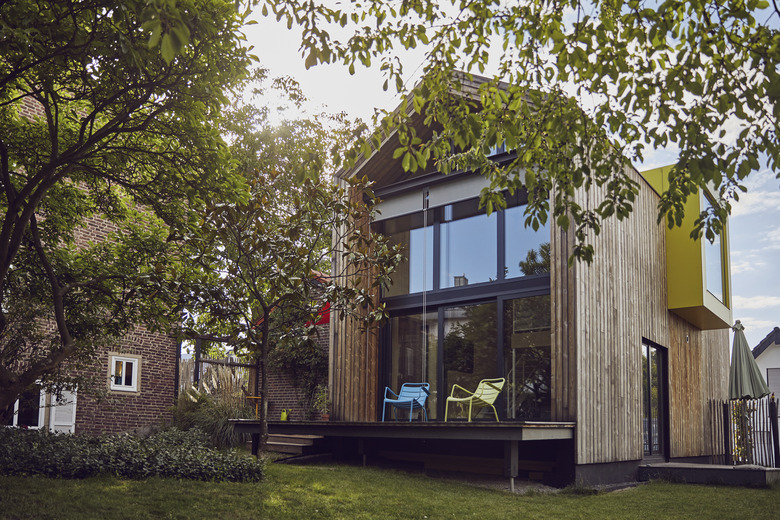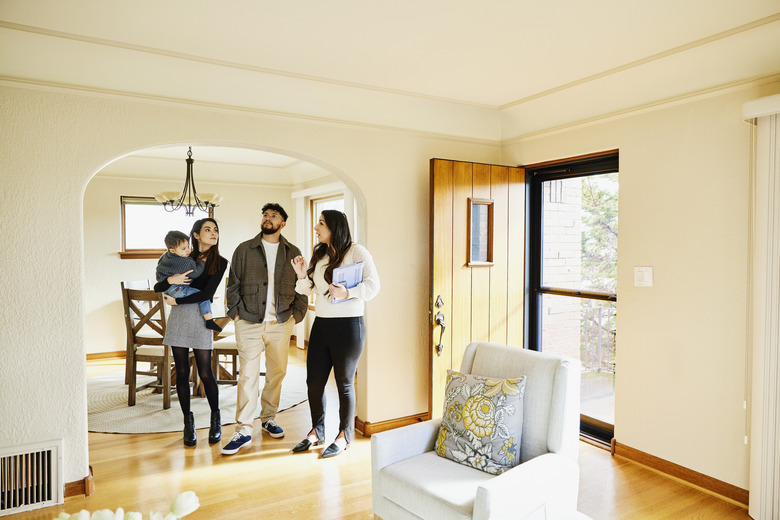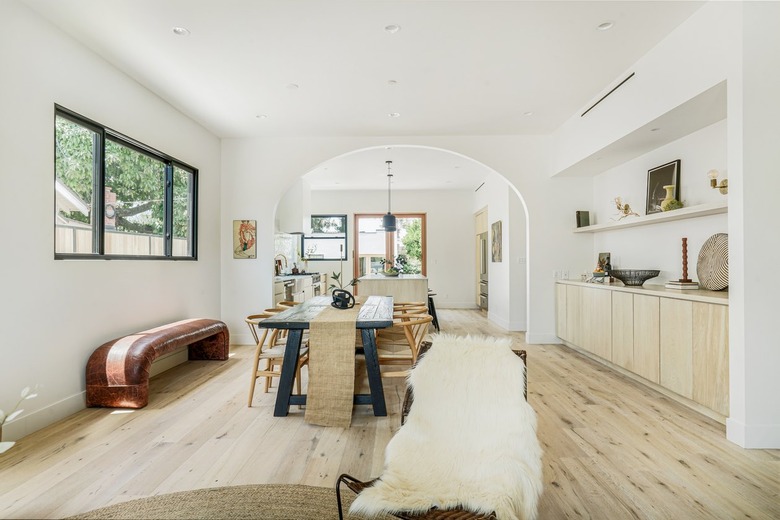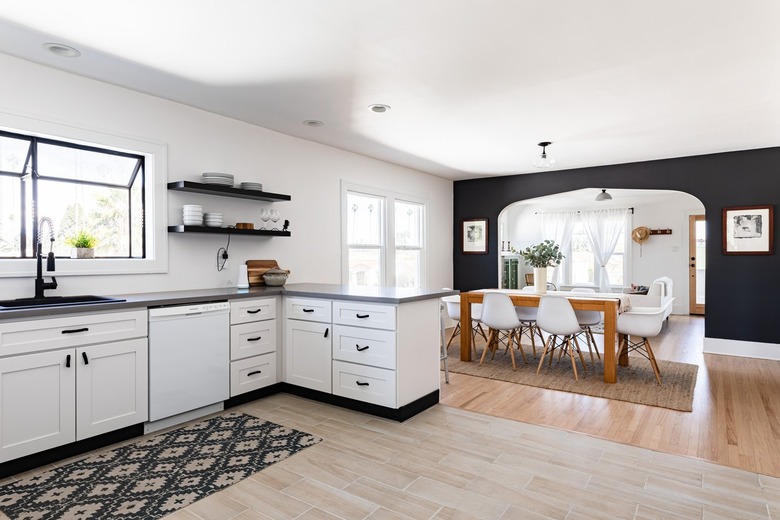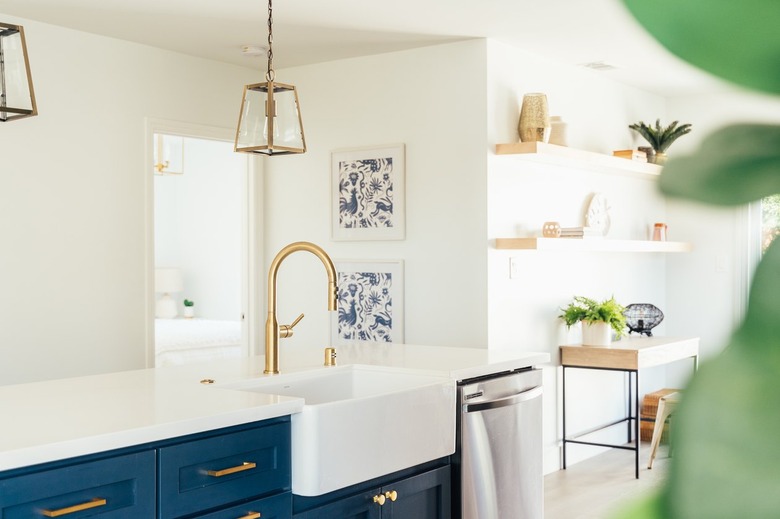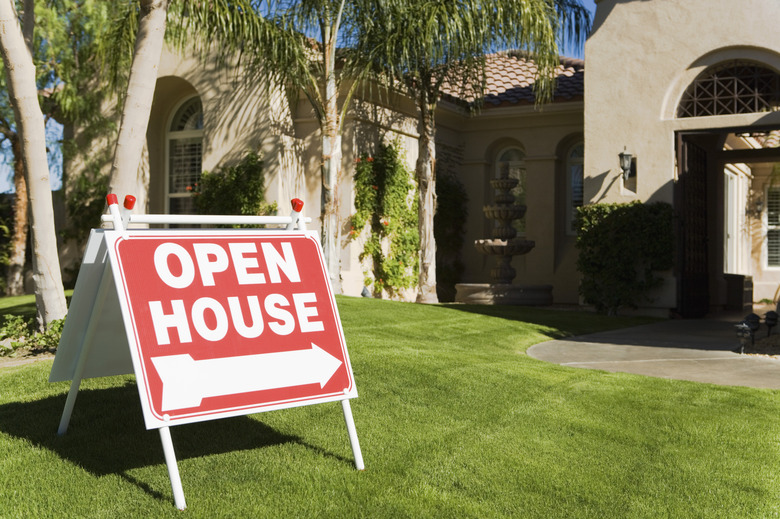How Do Open Houses Work?
Whether they're just browsing or are seriously interested in the home for sale, almost two-thirds of homebuyers attend at least one open house while searching for a home — and most attend more than one. Though open houses tend to draw a lot of nosy neighbors and real estate enthusiasts who likely aren't actually interested in buying, an open house offers a great way for homebuyers to get a closer look at a house without making a commitment. If you don't like what you see, no harm is done, and you can move on to the next prospect in your home search.
In the days of online home searches and virtual tours, open houses aren't as common as they used to be, and some real estate agents debate even on how useful they are. On the plus side, they offer buyers a chance to get a full sensory experience of the house, and for potential buyers who are new to the game, they offer an informal way to get educated and perhaps even find a compatible real estate agent to represent them.
For attendees, an open house is a social affair that is often accompanied by snacks, and it's a great way to make connections even if the property itself turns out to be a dud. But before you go, it's important to know how they work and how you should act while attending one.
Who Will Be There?
Who Will Be There?
The listing agent is responsible for organizing an open house unless the home is listed as "for sale by owner," in which case the seller organizes it. When the seller is working with an agent, the agent attends the open house to represent the seller, but the seller usually doesn't attend. This is a convention that spares the seller from having to answer awkward questions, and it gives potential buyers more license to speak freely. Buyers are encouraged to attend open houses themselves, but sometimes they are also represented by a buyer's agent.
As far as the seller is concerned, the more people who attend the open house, the better, which is why it's usually held on the weekend. Attendance is usually a mixture of window shoppers and serious buyers, and in a hot real estate market, it isn't unusual for prospective buyers to make an offer immediately after attending an open house. If you're interested in a particular property, attending the open house can quickly give you an idea of how much interest there is in the property and how quickly you should act if you decide you want it.
What Happens at an Open House?
What Happens at an Open House?
As part of the process of organizing an open house, the listing agent advertises it in local classifieds, on the local MLS and on social media, and at the appointed time, the agent is present to greet people at the property, sometimes offering snacks to create a congenial atmosphere (not all agents go to this much trouble). The agent typically places a sign-in sheet at the front door to record the number of visitors and to get follow-up information. After visitors sign in, they are free to look around on their own, and the agent remains available to answer any questions.
Potential buyers are encouraged to take notes and conduct small, nonintrusive inspections, such as flushing toilets, trying the light switches and faucets, and opening and closing doors and drawers. They are usually allowed to take simple measurements to see if their furniture will fit, and they have an opportunity to tour the exterior of the property. They can ask the listing agent about such things as the history of the property, why the seller decided to list it and which appliances are included. All in all, it's a chance for interested buyers to get a visceral feel for the home.
Preparing to Attend an Open House
Preparing to Attend an Open House
Whether this is your first time visiting open houses or you're a seasoned pro, you should do some research before you attend one, especially in a hot real estate market in which you're going to have competition. This may be your only chance to see the house, and there may be lots of other people there, so when you finally do get the attention of the real estate agent, you want to be able to ask directed questions rather than general ones for which you could easily find the answers yourself.
For example, if you research market trends in the neighborhood and discover the house is priced higher than you'd expect, you can ask the agent why that is so. That opens the door to a discussion of features that increase the property value that you may not have discovered otherwise. Conversely, if the asking price is low, your conversation may reveal red flags that are deal breakers, and you won't have to waste any more time. It's also a good idea to take a walk around the neighborhood before you attend the open house so you can ask the agent about any issues you notice, such as the next-door neighbor with the big dog.
How to Use an Open House
How to Use an Open House
An open house is not the time to make a detailed inspection, but buyers can take advantage of the opportunity for a cursory overview to get a significant amount of information. You normally won't be able to test the outlets, for example, but you can verify that each room has enough of them and that switches and other electrical basics are in the right places. Besides this, there are plenty of other nonintrusive ways to learn about the property:
- Use your sense of smell to detect any strange odors, such as gas or mold, that could be signs of hidden problems.
- Note the orientation of the widows. Does each part of the house get enough sun?
- Look under rugs and behind pictures and wall hangings to make sure they aren't covering cracks or other defects.
- Check the storage capacity in the kitchen cabinets and the bedroom closets to make sure there's enough room to suit your needs.
- Test the faucets and light switches and flush the toilets.
- Look for red flags, which are obvious signs of problems that could potentially be expensive to fix. Examples includes sloping floors, sticking doors and windows, discolored walls, or floors that could all be signs of water damage or mold or cracks in the walls. Pay particular attention to large cracks that spread diagonally or radiate out from a door or window because they often signify foundation issues.
Make notes of any problems you find, especially if you're serious about the property because they will be negotiating points if you decide to offer less than the asking price. If the real estate agent has no objections, it's also a good idea to take videos as you walk through the house. They are often more useful than the ones on the listing website, which are designed to show the house in as positive a way as possible. Be respectful to other people at the showing and leave them out of any videos or still photos you take.
While at the open house, be careful of what you say, or you could lose negotiating leverage. It's common practice for listing agents to station one or more cameras, and if it catches you effusing about features you like about the house, talking about what you can afford or discussing your bidding strategy, you may find the seller reluctant to strike an advantageous deal. Although it may sound paranoid, wait until you get back to the office to discuss your negotiating strategy with your agent.
Open House Etiquette
Open House Etiquette
No matter how congenial the listing agent makes it, an open house isn't a party, and the best way to approach attending one is as if you've been invited to a business meeting at someone's house. Dress as if you were going to the bank to apply for a loan. Some other guidelines for open house etiquette include:
- Follow the rules of the household. Take off your shoes if asked, sign in if there's a sign-in sheet and make sure you have permission before wandering into rooms with closed doors.
- Don't touch any of the homeowner's personal belongings. You're interested in buying the house, not the memorabilia on the fireplace mantle or the bedspreads.
- Don't listen in on conversations between other potential buyers and the listing agent. If you're about to go into a room and other people are already there, wait for them to leave before you enter.
- Don't bring food. Most agents and homeowners are fine with you bringing water, but they don't want food crumbs on the floor. If snacks are provided, eat them before you start touring the house.
- Leave your toddlers and young children at home. They'll just get bored and cause distractions for you and other people. Young babies are usually fine, as are teenagers, whose comments may actually be helpful.
